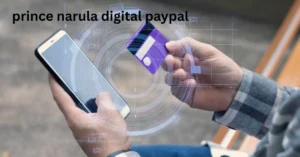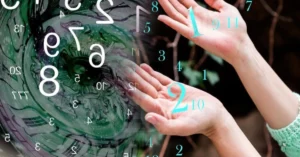In the ever-expanding world of digital culture, language evolves quickly. New terms emerge, sometimes mysteriously, capturing attention before they are fully understood. One such term rising quietly in digital spaces, niche forums, and experimental dialogues is Newtopy. At first glance, it might seem like a typo, a brand name, or a mashup of words—but beneath the surface lies a growing conversation about what it could represent, and why people are starting to ask about it.
If you’ve come across Newtopy and are wondering what it means, whether it’s a concept, a brand, or something in-between, this article explores the full landscape of possibilities. We’ll define the term as it’s currently understood, trace potential etymological roots, consider emerging uses, and explore how it fits into broader cultural and digital trends.
While the term does not yet have a fixed definition in dictionaries or mainstream media, it is increasingly used to suggest a new way of seeing or organizing knowledge, community, or digital spaces—a hybrid of “new” and “utopy” (a shortened version of utopia). Newtopy is not just a word—it’s an idea in progress, and this article is here to explore what that might mean.
Defining “Newtopy”: Etymological Roots and Conceptual Interpretation
To understand Newtopy, it helps to break the word down:
- “New” — indicating innovation, freshness, or departure from the old.
- “Topy” — likely derived from “utopy,” which itself stems from utopia, a term coined by Thomas More in the 16th century to describe an ideal society.
Combining these, New-topy can be understood as:
A new vision of an ideal system, environment, or structure—whether social, digital, intellectual, or artistic.
It suggests forward-thinking idealism, but not necessarily in a traditional or perfect sense. Unlike utopia, which is often criticized as unrealistic, New-topy may imply a pragmatic reimagining—not perfect, but better, more adaptive, more human.
Is Newtopy a Movement, a Concept, or a Brand?
Currently, Newtopy is not officially associated with a brand, app, or trademarked service. However, it’s increasingly used in online discussions—often in relation to:
- Digital community experiments
- Reimagined education platforms
- Alternative social media environments
- Artistic collectives focusing on future societies
- Decentralized knowledge platforms
Because of its flexible structure, Newtopy is malleable, open to interpretation, and still forming. In some contexts, people use it metaphorically—“We’re trying to build a Newtopy here”—to describe projects or discussions centered on innovation and inclusivity.
In that sense, Newtopy is not owned, but collaboratively imagined.
Key Themes Emerging Around Newtopy
Though amorphous, several themes seem to orbit around the growing usage of the term:
1. Knowledge Systems and Learning
One of the most common associations with New-topy is rethinking how we learn and share information. With traditional education systems under scrutiny, especially post-pandemic, there’s a strong push toward platforms and environments that offer:
- Collaborative, student-centered learning
- Open-source knowledge
- Flexible, modular course structures
- Low-cost or free access
In these discussions, Newtopy is sometimes positioned as an idea for a “new university”, decentralized and borderless.
2. Digital Spaces and Decentralized Communities
New-topy is also surfacing in debates about the future of social media and online discourse. After disillusionment with algorithms, polarization, and data privacy issues, digital thinkers are imagining:
- Platform cooperatives where users own the network
- AI-assisted but human-led moderation
- Content spaces that reward thoughtful contribution over virality
In these experiments, Newtopy is shorthand for a healthier, more intentional internet.
3. Environmental and Urban Futures
In urban planning and climate-forward design, Newtopy may be used to describe:
- Green architecture
- Self-sustaining communities
- Climate-resilient cities
- Agrihoods and walkable neighborhoods
The idea is to propose livable, equitable environments built with future challenges in mind—technologically enhanced but rooted in natural systems.
4. Art and Imagination
Artists and writers have also started invoking Newtopy as a creative prompt—imagining what a future society might look like if designed more ethically, more inclusively, and less mechanistically.
From digital installations to speculative fiction, Newtopy has become a canvas for future-thinking art.
Why Is Newtopy Gaining Attention Now?
Several cultural shifts help explain the term’s growing traction:
The Collapse of Old Systems
- Disillusionment with traditional institutions—education, government, media—has accelerated.
- Economic precarity and global crises have made many skeptical of incremental reform.
The Search for Alternatives
- As problems compound, there’s a new urgency in exploring bold alternatives, even if they’re experimental.
- Web3, decentralization, and the open-source movement embody this momentum.
Language as Possibility
- Terms like “Newtopy” create linguistic permission to explore without needing fixed definitions.
- They become placeholders for collective imagination—a way to signal seriousness without rigidity.
Potential Future Uses of Newtopy
As the term stabilizes and enters broader discourse, it could manifest in:
1. Tech Platforms
- An online knowledge hub or collaborative social network that uses the name Newtopy.
- A decentralized publishing platform powered by community consensus.
2. Educational Models
- A rebranded online university with values of openness and creativity.
- Certification-free, skill-based collaborative learning spaces.
3. Communities and Eco-Villages
- Intentional living communities branding themselves as a Newtopy experiment.
- Urban projects funded through crowdfunding or cooperatives.
4. Art and Media
- Magazines, digital art collectives, or podcasts dedicated to future design and culture.
- Fictional works that frame New-topy as a speculative location.
Challenges to Defining or Scaling Newtopy
While open-endedness is its strength, it’s also New-topy’s biggest hurdle.
1. Ambiguity
- Without clear goals, projects using the term may diverge or dilute meaning.
2. Commercial Co-opting
- As with terms like “green” or “decentralized,” there’s a risk of corporations using the term for PR without real alignment.
3. Fragmentation
- Too many isolated experiments under the New-topy banner may struggle to connect, reducing momentum.
But like any nascent movement or meme, ambiguity also invites contribution. That’s what keeps the idea alive.
The Philosophical Heart of Newtopy
At its core, Newtopy seems to ask:
What would it look like to build something new, intentionally, and collectively—outside inherited systems but within real-world limits?
It doesn’t require a revolution, but rather a reorientation. A move from extractive to generative. From silos to synergy. From passive consumption to active participation.
This is the reason why Newtopy feels different from utopia. It’s not about perfection. It’s about iteration, adaptation, and co-creation—values that resonate deeply in the age of climate change, digital transformation, and cultural realignment.
Conclusion
Newtopy, while still undefined in formal lexicons, is a living idea—part phrase, part project, part vision. It captures a desire to rethink the systems we live by, the spaces we inhabit, and the platforms we use to connect, learn, and grow.
Whether it becomes a widely adopted movement or remains a niche term, Newtopy matters because it opens space for possibility-driven dialogue. In an era of fragmentation and fatigue, the ability to collectively imagine—and name—something new may be more powerful than we think.
As the term gains clarity, one thing is certain: New-topy isn’t a place or a product. It’s an invitation—to imagine differently, build boldly, and question deeply.
FAQs
1. What does the word Newtopy mean?
Newtopy is an emerging concept suggesting a new vision of ideal systems, communities, or platforms, blending “new” with “utopy.”
2. Is Newtopy a real project or platform?
As of now, New-topy is more a concept or emerging term than a fixed platform or brand. Its uses are experimental and diverse.
3. Where did New-topy originate?
The term has no single point of origin but has appeared in digital discussions about future learning, community, and tech design.
4. Can I start my own New-topy project?
Absolutely. The term is open-source in spirit. Anyone creating something forward-thinking, inclusive, and intentional can explore using the concept.
5. Is Newtopy the same as utopia?
No. While it draws from utopian thinking, New-topy is more grounded, iterative, and pragmatic—focused on real-world systems and co-creation.
For more information, click here.









